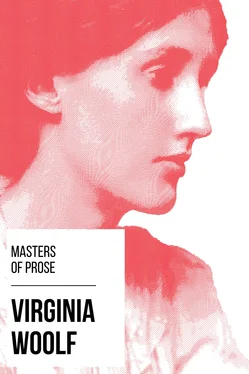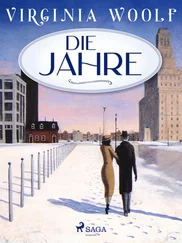Again they were in darkness and her anger became modified directly she could see nothing but the poet's knees.
'But it is I that am a wretch,' she reflected, once they were in complete obscurity again, 'for base as you may be, am I not still baser? It is you who nourish and protect me, you who scare the wild beast, frighten the savage, make me clothes of the silkworm's wool, and carpets of the sheep's. If I want to worship, have you not provided me with an image of yourself and set it in the sky? Are not evidences of your care everywhere? How humble, how grateful, how docile, should I not be, therefore? Let it be all my joy to serve, honour, and obey you.'
Here they reached the big lamp-post at the corner of what is now Piccadilly Circus. The light blazed in her eyes, and she saw, besides some degraded creatures of her own sex, two wretched pigmies on a stark desert land. Both were naked, solitary, and defenceless. The one was powerless to help the other. Each had enough to do to look after itself. Looking Mr Pope full in the face, 'It is equally vain', she thought; 'for you to think you can protect me, or for me to think I can worship you. The light of truth beats upon us without shadow, and the light of truth is damnably unbecoming to us both.'
All this time, of course, they went on talking agreeably, as people of birth and education use, about the Queen's temper and the Prime Minister's gout, while the coach went from light to darkness down the Haymarket, along the Strand, up Fleet Street, and reached, at length, her house in Blackfriars. For some time the dark spaces between the lamps had been becoming brighter and the lamps themselves less bright--that is to say, the sun was rising, and it was in the equable but confused light of a summer's morning in which everything is seen but nothing is seen distinctly that they alighted, Mr Pope handing Orlando from her carriage and Orlando curtseying Mr Pope to precede her into her mansion with the most scrupulous attention to the rites of the Graces.
From the foregoing passage, however, it must not be supposed that genius (but the disease is now stamped out in the British Isles, the late Lord Tennyson, it is said, being the last person to suffer from it) is constantly alight, for then we should see everything plain and perhaps should be scorched to death in the process. Rather it resembles the lighthouse in its working, which sends one ray and then no more for a time; save that genius is much more capricious in its manifestations and may flash six or seven beams in quick succession (as Mr Pope did that night) and then lapse into darkness for a year or for ever. To steer by its beams is therefore impossible, and when the dark spell is on them men of genius are, it is said, much like other people.
It was happy for Orlando, though at first disappointing, that this should be so, for she now began to live much in the company of men of genius. Nor were they so different from the rest of us as one might have supposed. Addison, Pope, Swift, proved, she found, to be fond of tea. They liked arbours. They collected little bits of coloured glass. They adored grottos. Rank was not distasteful to them. Praise was delightful. They wore plum-coloured suits one day and grey another. Mr Swift had a fine malacca cane. Mr Addison scented his handkerchiefs. Mr Pope suffered with his head. A piece of gossip did not come amiss. Nor were they without their jealousies. (We are jotting down a few reflections that came to Orlando higgledy-piggledy.) At first, she was annoyed with herself for noticing such trifles, and kept a book in which to write down their memorable sayings, but the page remained empty. All the same, her spirits revived, and she took to tearing up her cards of invitation to great parties; kept her evenings free; began to look forward to Mr Pope's visit, to Mr Addison's, to Mr Swift's--and so on and so on. If the reader will here refer to the "Rape of the Lock", to the "Spectator", to "Gulliver's Travels", he will understand precisely what these mysterious words may mean. Indeed, biographers and critics might save themselves all their labours if readers would only take this advice. For when we read:
Whether the Nymph shall break Diana's Law,
Or some frail China Jar receive a Flaw,
Or stain her Honour, or her new Brocade,
Forget her Pray'rs or miss a Masquerade,
Or lose her Heart, or Necklace, at a Ball.
--we know as if we heard him how Mr Pope's tongue flickered like a lizard's, how his eyes flashed, how his hand trembled, how he loved, how he lied, how he suffered. In short, every secret of a writer's soul, every experience of his life; every quality of his mind is written large in his works; yet we require critics to explain the one and biographers to expound the other. That time hangs heavy on people's hands is the only explanation of the monstrous growth.
So, now that we have read a page or two of the "Rape of the Lock", we know exactly why Orlando was so much amused and so much frightened and so very bright-cheeked and bright-eyed that afternoon.
Mrs Nelly then knocked at the door to say that Mr Addison waited on her Ladyship. At this, Mr Pope got up with a wry smile, made his congee, and limped off. In came Mr Addison. Let us, as he takes his seat, read the following passage from the "Spectator":
'I consider woman as a beautiful, romantic animal, that may be adorned with furs and feathers, pearls and diamonds, ores and silks. The lynx shall cast its skin at her feet to make her a tippet, the peacock, parrot and swan shall pay contributions to her muff; the sea shall be searched for shells, and the rocks for gems, and every part of nature furnish out its share towards the embellishment of a creature that is the most consummate work of it. All this, I shall indulge them in, but as for the petticoat I have been speaking of, I neither can, nor will allow it.'
We hold that gentleman, cocked hat and all, in the hollow, of our hands. Look once more into the crystal. Is he not clear to the very wrinkle in his stocking? Does not every ripple and curve of his wit lie exposed before us, and his benignity and his timidity and his urbanity and the fact that he would marry a Countess and die very respectably in the end? All is clear. And when Mr Addison has said his say, there is a terrific rap at the door, and Mr Swift, who had these arbitrary ways with him, walks in unannounced. One moment, where is "Gulliver's Travels"? Here it is! Let us read a passage from the voyage to the Houyhnhnms:
'I enjoyed perfect Health of Body and Tranquillity of Mind; I did not find the Treachery or Inconstancy of a Friend, nor the Injuries of a secret or open Enemy. I had no occasion of bribing, flattering or pimping, to procure the Favour of any great Man or of his Minion. I wanted no Fence against Fraud or Oppression; Here was neither Physician to destroy my Body, nor Lawyer to ruin my Fortune; No Informer to watch my Words, and Actions, or forge Accusations against me for Hire: Here were no Gibers, Censurers, Backbiters, Pickpockets, Highwaymen, Housebreakers, Attorneys, Bawds, Buffoons, Gamesters, Politicians, Wits, splenetick tedious Talkers...'
But stop, stop your iron pelt of words, lest you flay us all alive, and yourself too! Nothing can be plainer than that violent man. He is so coarse and yet so clean; so brutal, yet so kind; scorns the whole world, yet talks baby language to a girl, and will die, can we doubt it? in a madhouse.
So Orlando poured out tea for them all; and sometimes, when the weather was fine, she carried them down to the country with her, and feasted them royally in the Round Parlour, which she had hung with their pictures all in a circle, so that Mr Pope could not say that Mr Addison came before him, or the other way about. They were very witty, too (but their wit is all in their books) and taught her the most important part of style, which is the natural run of the voice in speaking--a quality which none that has not heard it can imitate, not Greene even, with all his skill; for it is born of the air, and breaks like a wave on the furniture, and rolls and fades away, and is never to be recaptured, least of all by those who prick up their ears, half a century later, and try. They taught her this, merely by the cadence of their voices in speech; so that her style changed somewhat, and she wrote some very pleasant, witty verses and characters in prose. And so she lavished her wine on them and put bank-notes, which they took very kindly, beneath their plates at dinner, and accepted their dedications, and thought herself highly honoured by the exchange.
Читать дальше











